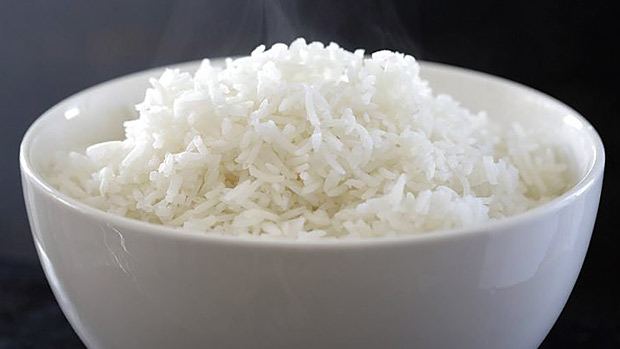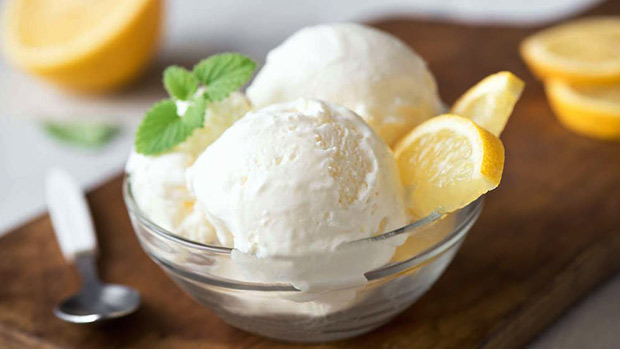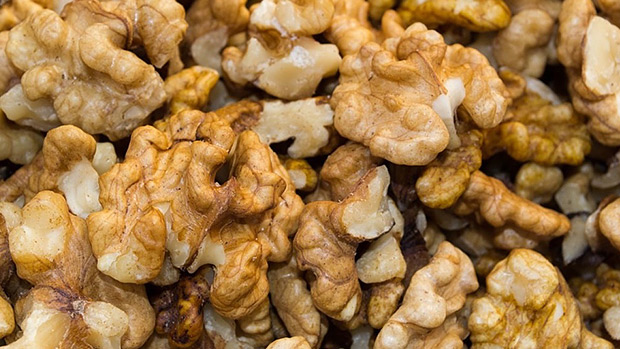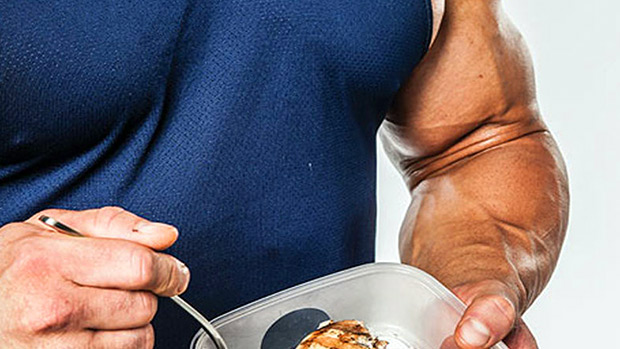Who has time to cook a few extra chicken breasts every few days? Who has time to make a big pot of rice or potatoes? Someone should invent a kitchen appliance where you just throw the meat and starches in overnight and BAM, cooked food for the week.
That would be amazing. That's a zillion dollar idea. If only someone would do that...
Since no one has created such a machine (sarcasm) then you've gotta get creative. And it's not that hard. The truth is, you can still grab some really convenient foods that require nothing more than a fork, shaker bottle, or microwave.
Here are some food selections that don't require a macro calculator (you know, because of packaging and stuff) that'll be good to go while you're on the go.

It's probably the single best muscle-building food on the planet. That includes red meat, despite its reputation as a magical muscle builder.
Salmon is chock-full of anti-inflammatory omega-3's and the antioxidant astaxanthin, the king of carotenoids. Along with its ability to fight inflammation, it's been shown to improve cognition, improve immune function, and reduce oxidative stress (1).
Salmon is a can't-miss food, especially the smoked kind, which is great by itself or perfect with a couple of eggs.
There's some debate over wild caught or farm raised when it comes to nutritional value. Wild caught salmon has a better nutritional profile than farm raised salmon if you're basing it off the omega-3 to omega-6 ratio, but people who get overly emotional about this topic are being drama queens.
Farm-raised salmon typically has more 3's than wild caught does; it's just that it packs more of the omega 6's too. If you're singling out salmon based on this factor alone then you're throwing the salmon out with the farm water. It's mostly irrelevant.
The real issue with farm raised is that it often contains high concentrations of organochlorine compounds such as PCBs, dioxins, and chlorinated pesticides. But that can vary wildly based on the geographical area where the salmon came from (2).
If you're one of those "I only eat organic, grass fed, wheat germ, non-GMO, gluten free" people, then get the wild caught salmon, you diva. If not, just get some packaged smoked salmon regardless of whether it's wild caught or farm raised and enjoy your life.
For your value, I picked up both kinds to look at the labels. Here are the macros per 4 ounces:
Ducktrap Sockeye Wild Salmon
- Calories: 180
- Protein: 26 grams
- Carbs: 0 grams
- Fats: 8 grams
Whole Catch Cold Smoked Atlantic Salmon (farm raised)
- Calories: 250
- Protein: 26 grams
- Carbs: 0 grams
- Fats: 16 grams

These are not only solid on the macro count, but also taste amazing. Like ridiculously amazing. I ate six one night without thinking about it. You should too.
If you down one of these puppies here's what you'll be getting.
Jimmy Dean Delight Egg White, Turkey Sausage and Cheese
- Calories: 260
- Protein: 17 grams
- Carbs: 32 grams
- Fats: 8 grams
I really like these macros for pre-workout. In fact, it's just a couple of digits off what I consider the ideal ratio of a pre-workout meal (20 grams protein, 30 grams carbs, 10 grams fat).
One of these would work well 60-90 minutes prior to training, but they go down the hatch practically any time of the day.

Jasmine rice has been my staple carb source for years. And unlike normal white rice, which gets hard and crusty in the fridge, it tends to keep well. You can cook a lot of it and reheat it later in case you actually do that whole meal-prep thing.
Unlike brown rice, no one seems to have digestive issues with jasmine or white rice. But for convenience, good ol' Uncle Ben has some handy dandy jasmine rice that comes in a pouch or a little cup. Just throw it in the microwave for 60 seconds and you're good to go.
There's a slight amount of sunflower oil added to it which is why there are a few grams of fat in there. Clearly not enough to be bothered with. Servings come in one-cup measurements.
Uncle Ben's Ready Jasmine Rice
- Calories: 240
- Protein: 5 grams
- Carbs: 48 grams
- Fats: 3.5 grams

Protein is king when it comes to both muscle building and fat loss, because it's the one thing outside of calories that has to be accounted for when accurately comparing the efficiency of a nutritional protocol. That's why when protein and calories are matched, there's no diet out there that works better than the other.
And protein powder has come a long way. Guys who didn't start picking up heavy things until after the internet was invented have no idea about the suffering we went through. Young guys never opened a giant jug of smelly Weider Mega Mass 2000, which contained a scoop the size of a rhinoceros horn.
Thankfully, we have access to protein powders these days that taste downright amazing. And I put Metabolic Drive® Protein at the top of that list. In fact, the first time I shook some up in water and hit it, I thought, "Well, this is some bullshit. There's no way this is protein powder. It has to be some derivative of Swiss Miss." It's THAT good.
And since we're talking about convenience here, what's more convenient than a high-quality protein powder? Really think about it. You can pound down as much protein that's in eight ounces of chicken in one minute. And you can put two scoops in a zip-lock bag and tote it around in a side pocket of your jacket or cargo shorts. Try doing that with a chicken breast. It's weird.
Here's what you're getting from two scoops:
Metabolic Drive® Protein
- Calories: 220
- Protein: 42 grams
- Carbs: 8 grams
- Fats: 2 grams
A lot of folks don't think about the flexibility of it either. Need to keep your appetite in check? Add it to the blender with ice and water, blend it longer, and the additional air volume will fill you up more. Drink it this way before meals and you'll end up eating less food, which means fewer total calories.
Need more calories? You can shake it up, stick it in the fridge for a few hours, and let it it settle so that it has less volume. Then drink it AFTER a meal for additional protein and calories, but without taking up much space in your stomach.
If you're going on a business trip, protein powder is probably one of the easiest ways to make sure you don't go off the rails. People who travel for work should be carrying protein powder with them. It makes dietary compliance easier.

The carbs in different sorbets can vary quite a bit so check the nutrition label. Sorbet is carb-heavy, so you probably want to reserve it for after a high-volume leg or back training session. Especially if you're going to have the whole thing. If you're a psychopath, then I suppose you could eat half of it.
Sorbet is made of fruit puree and a sweetener like honey or sugar, but it's devoid of dairy. So if you're lactose intolerant you're good to go. Because it's absent of fat and protein and is such a simple carb source, it has a very high glycemic load. It's going to get through the digestive tract very quickly, which means it's a great source for fast glycogen replenishment post-workout.
If you eat the whole pint, here's what you'll be getting...
Häagen-Dazs Lemon Sorbet
- Calories: 420 calories
- Protein: 0 grams
- Carbs: 109 grams
- Fats: 0 grams

Pretty much all nut varieties fall under what the general population considers a "health food." Nuts are often packed full of good fats, aren't carb heavy, and have a little bit of protein.
They're a fat source, which means there's a lot of calories. If you're not careful it's really easy to eat a metric butt-ton of calories from nuts. So you actually have to be a bit careful with them.
It's hard to beat almonds and walnuts as a fat source. Especially walnuts if we're talking about increasing alpha-linolenic acid intake, which has been linked to reducing the chances for myocardial infarction and stroke (3,4).
Here's what you'll get in 1/4 cup:
- Calories: 200
- Protein: 5 grams
- Carbs: 4 grams
- Fats: 20 grams
Adding a high-quality fat source like walnuts will also slow down the digestive rate of the accompanying foods, and help with satiety. Satiety is often one of the biggest factors in terms of achieving a high degree of adherence to a nutritional plan.
Just make sure to actually measure out the nuts and don't try to wing it. That's a great way to accidentally wolf down an extra 500-800 calories without even realizing it.
- Ambati RR et al. Astaxanthin: Sources, Extraction, Stability, Biological Activities and Its Commercial Applications-A Review. Mar Drugs. 2014 Jan 7;12(1):128-52. PubMed.
- Shaw SD et al. PCBs, PCDD/Fs, and organochlorine pesticides in farmed Atlantic salmon from Maine, eastern Canada, and Norway, and wild salmon from Alaska. Environ Sci Technol. 2006 Sep 1;40(17):5347-54. PubMed.
- de Lorgeril M et al. Mediterranean alpha-linolenic acid-rich diet in secondary prevention of coronary heart disease. Lancet. 1994 Jun 11;343(8911):1454-9. PubMed.
- Estruch et al. Primary Prevention of Cardiovascular Disease with a Mediterranean Diet. N Engl J Med. 2013 Apr 4;368(14):1279-90. PubMed.





